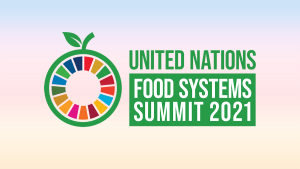

As many of you know, the UN is planning a 2021 global “Food Summit.” We don’t know right now if the Summit will be in person, as originally planned, with a pre-summit event in Rome, or whether the event will go virtual or take on some other form due to the global Covid-19 pandemic. This post presents a bit of information on what the UN is saying about the Summit as well as sharing some concerns about the approach and the current strategy and drivers of the Summit. It will be important to watch over the coming months to see how our own regional values and Vision resonate with this Summit, or not.
From the UN:
“In 2021, UN Secretary-General António Guterres will convene a Food Systems Summit to raise global awareness and land global commitments and actions that transform food systems to resolve not only hunger, but to reduce diet-related disease and heal the planet. The Secretary General is calling for collective action of all citizens to radically change the way we produce, process, and consume food.”
Also:
“The 2021 Food System Summit must be more than just a moment in time. It must offer a turning point in our efforts to deliver the 2030 Agenda and Sustainable Development Goals (SDGs). And we need broad participation to make that happen…The Summit seeks to energize and accelerate our collective journey to eliminate hunger, create more inclusive and healthier food systems, and safeguard the health of our planet.”
But there are concerns about this Summit and the type of actual participation being observed so far. There’s this, from the ETC Group:
In October 2019, the UN Secretary-General’s official announced a World Food Systems Summit to be held in New York in 2021, with a pre-conference in Rome. Although the WFSS concept paper calls for “multi-stakeholder” participation, there is no reference to civil society, farmers, fisherfolk or livestock keepers ,and no acknowledgement of Indigenous peoples.
So bold is the agribusiness imprint on the WFSS, that its special champion is a noted industrial agriculture cheerleader. On February 10, 176 organizations from 83 countries, wrote to condemn the appointment of Agnes Kalibata, President of the Alliance for a Green Revolution in Africa (AGRA), a Gates-funded group “centered on capturing and diverting public resources to benefit large corporate interests,” as Special Envoy from the UN Secretary-General to the 2021 UN Food Systems Summit.
In this same context, the International Planning Committee for Food Sovereignty (IPC) launched a petition raising concerns about the Food Systems Summit and calling for the UN to drop its partnership with the World Economic Forum. The petition states that “the UN-WEF strategic partnership agreement … casts a cloud on the integrity of the UN as a multilateral system.”
Meanwhile, the Oakland Institute is specifically naming as problematic that name of Agnes Kalibata, President of the Alliance for a Green Revolution in Africa (AGRA), as the UN Special Envoy for this event.
“Founded by the Bill and Melinda Gates Foundation and the Rockefeller Foundation, AGRA’s efforts have centered on capturing and diverting public resources to benefit large corporate interests. Their finance-intensive and high input agricultural model is not sustainable beyond constant subsidy, which is drawn from increasingly scarce public resources. Since 2006, AGRA has worked to open up Africa—seen as an untapped market for corporate monopolies controlling commercial seeds, genetically modified crops, fossil fuel-heavy synthetic fertilizers and polluting pesticides. This is an ill-conceived approach focused on mono cultural commodity production by large agribusiness at the expense of sustainable livelihoods, human development, and poverty eradication.”
The International Planning Committee for Food Sovereignty has this to say:
“In a letter handed-over last week to the UN Secretary General António Guterres, 550 civil society organisations (CSOs), universities and social movements from across the world are calling for a rethink of how the summit is organized.
The World Economic Forum (WEF), which signed a strategic partnership agreement with the UN Secretary General last June, is harnessing the opportunities of the technological revolution for the benefit of transnational corporations and global financial capital. Having it as an architect of the summit would push us away from real solutions to the ongoing crises of food systems and climate change.”
These critiques must be taken seriously if the Summit truly seeks to achieve the goals it sets forth. It remains to be seen how this will play out, but we know that our local, state and regional food systems will continue to be impacted be decisions made on the national and international stages, so these developments continue to matter to us here on the ground in New England.
Thank you to the COMFOOD listserv members for bringing specific aspects of this topic to the forefront.




